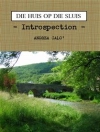Greenwood Plantation in the Red Hills region of southwest Georgia includes a rare one-thousand-acre stand of old-growth longleaf pine woodlands, a remnant of an ecosystem that once covered close to ninety million acres across the Southeast. The Art of Managing Longleaf documents the sometimes controversial management system that not only has protected Greenwood’s “Big Woods” but also has been practiced on a substantial acreage of the remnant longleaf pine woodlands in the Red Hills and other parts of the Coastal Plain. Often described as an art informed by science, the Stoddard-Neel Approach combines frequent prescribed burning, highly selective logging, a commitment to a particular woodland aesthetic, intimate knowledge of the ecosystem and its processes, and other strategies to manage the longleaf pine ecosystem in a sustainable way.
The namesakes of this method are Herbert Stoddard (who developed it) and his colleague and successor, Leon Neel (who has refined it). In addition to presenting a detailed, illustrated outline of the Stoddard-Neel Approach, the book—based on an extensive oral history project undertaken by Paul S. Sutter and Albert G. Way, with Neel as its major subject—discusses Neel’s deep familial and cultural roots in the Red Hills; his years of work with Stoddard; and the formation and early years of the Tall Timbers Research Station, which Stoddard and Neel helped found in the pinelands near Tallahassee, Florida, in 1958. In their introduction, environmental historians Sutter and Way provide an overview of the longleaf ecosystem’s natural and human history, and in his afterword, forest ecologist Jerry F. Franklin affirms the value of the Stoddard-Neel Approach.
Om författaren
PAUL S. SUTTER is an associate professor of history at University of Colorado, Boulder. He is the author of Driven Wild: How the Fight against Automobiles Launched the Modern Wilderness Movement.












